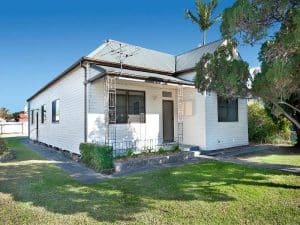“It’s not worthwhile having a depreciation schedule” – How costly unqualified advice can be

Recently we were following up on a quote in Newcastle, NSW for a house that had been split into three small units. The owner came back to us with the following:
“Thank you for your email. After sending this email, I spoke to the managing real estate who advised me that the house was too old to obtain depreciation that was worth paying for a report on.”
I replied saying thank you for the response, but suggested that since we provide free advice, it would be worthwhile providing some further evidence, to enable us to assess the viability of the report. As our first step, we’ll always see whether the report is going to be worthwhile or not, and have learnt that advice from a real estate agent, accountant or any other well-meaning individual is only as good as their depreciation knowledge.
As it turned out, the property was no beauty.

However, the property was not in its original condition. From a desktop review, we assumed there had been some expenditure related to the reconfiguration of the property, and it appeared that the cladding and roofing was not original. Additional to this, the client had added some new hot water systems and a kitchen stove.
I suggested that in this instance that there was enough evidence surmise that the report would be worthwhile and that we should inspect the property and see how it stacked. If we couldn’t achieve more than twice the fee for our report, we would cancel the schedule at no cost to the owner.
The inspection was rather interesting itself. Not so much for the property, but the tenant who forgot we were coming through with the keys and left their *cough* recreational tools on display, and the lady who thought the best way to show me the water pipes were staining her clothes, was to show me her underpants. Just another day on site in the life of a Quantity Surveyor!
Apart from those mildly scarring discoveries, we found updated carpet, vinyl as well as curtains and blinds. The property was never going to break any records, but we found over $4,000 worth of deductions within the first full year and just shy of $4,000 per year over the first 5 years.
Based on an average salary, the report was putting over $1,200 back in the clients pocket for each of those 5 years after the cost of the report had been deducted.
The point of the story is that we face this situation too often. Whilst we’ll never pressure a client to have a report completed, we cannot in good faith say we’re looking out for them until they understand what a report could actually do for them, regardless of the advice they received. There are too many older properties where depreciation is not applied, based on the view that the property must be too old. There are certainly properties where there’s nothing left to claim, but investors should always seek qualified advice before electing not to follow up depreciation.
